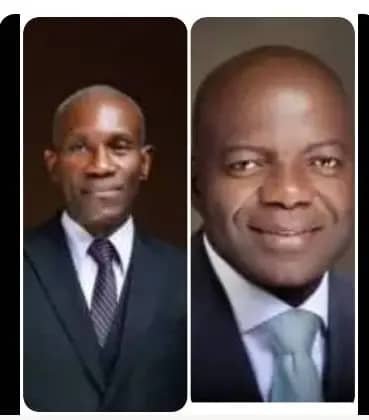*WHAT IF GOV. OTTI IS WRONG?
A Question That Falls Apart the Moment the Facts Arrive*
Every political era has its favourite question, and in Abia today, the provocation of choice seems to be: “What if Gov. Otti is wrong?”
It is a beautifully dramatic question—until one places it beside actual history, verifiable data, and the sobering memory of what Abia truly was before May 2023. Then the question disintegrates into dust.
To ask whether Otti is wrong, one must first recall what he inherited. Between 2015 and 2023, salary arrears mounted across institutions like a national embarrassment. Abia Poly, Absu Teaching Hospital, Arochukwu College of Education and multiple ministries were trapped in salary backlogs ranging from 36 to 46 months. The average monthly FAAC allocation was barely ₦1.8–₂.2 billion, against a wage bill of ₦2.4 billion—a structural impossibility that guaranteed insolvency. Pensioners languished. Roads collapsed. Public trust evaporated. That was the Abia before him.
Against that backdrop, the question “What if Otti is wrong?” is almost poetic—because it hides the more uncomfortable truth: for decades, Abia governors were wrong in ways that dragged the state to its knees.
But let us indulge the question.
What if Otti is wrong for making Abia one of only three states in the entire federation publishing quarterly budget performance reports, debt disclosures, procurement details, citizens’ budgets and audited accounts? Under previous administrations—including those now offering unsolicited fiscal lectures—these documents did not exist in the public sphere. In fact, the World Bank’s SFTAS Programme consistently ranked Abia among the bottom states in fiscal transparency from 2017 to 2022. Yet today, everything from revenue to expenditure is digitised and open. If this is wrong, Abia needs more wrongness.
What if Otti is wrong for rebuilding Port Harcourt Road with the seriousness it deserved, instead of continuing the tradition of cosmetic patchwork? Julius Berger’s televised geotechnical survey exposed the truth: collapsed drainage, hydrocarbon-infested soil, a missing sub-base and structural decay stretching 40 years. This was not a “road project,” but a total rehabilitation of an industrial artery that had died in the 1980s. Comparing such reconstruction with hotel renovation figures in other states is not analysis—it is intellectual escapism.
What if Otti is wrong about Enyimba Hotels? The rumoured “$50 million” figure was never announced by the government. It circulated only through political blogs feeding an already polarised environment. Modern hospitality retrofits depend on imported HVAC systems, elevators, fire-suppression networks and building-management systems—all globally priced in dollars. Even Lagos’ Eko Hotel upgrades were costed in USD. Yet those who never asked questions when Abia’s public assets collapsed are suddenly fiscal puritans when revival begins.
What if Otti is wrong for clearing salary arrears owed before his administration? Or for paying monthly salaries without drama? Or for digitizing revenue systems, reviving moribund agencies, and restoring IPPIS discipline? Or for repealing the anti-people pension law that blessed former governors with lifelong luxury while civil servants starved? If these are errors, then Abia must pray for more of them.
And what if he is “wrong” for refusing to bow to the politics of darkness? For insisting on transparency even when it offends the old order? For rebuilding schools, reviving hospitals, fixing long-dead roads and publishing the evidence for citizens to audit?
Even the infamous “₦38 billion monthly revenue” accusation collapses under scrutiny. FAAC’s official bulletin shows Abia receives ₦6.8 billion gross monthly, with a net of ₦5.4 billion, and total liquidity including VAT and IGR between ₦8–₦10 billion. Not ₦38 billion. Not even remotely close. When arguments rely on fantasy figures, the debate ends before it begins.
And what of the AfDB loan—a loan that critics insist will be “hidden”? Anyone familiar with multilateral financing knows this is impossible. AfDB loans are monitored through third-party audits, internationally supervised procurement, and tranche-based disbursements with performance milestones. No state, not even the richest, can misuse such funds without global repercussions. Yet misinformation thrives best among those unfamiliar with development finance.
The truly inconvenient truth is this: the Abia of 2023–2025 is more transparent, more fiscally disciplined, more infrastructurally active and more institutionally alive than the Abia of the previous two decades. The improvements are measurable. The reforms are documented. The results are visible.

So, what if Gov. Otti is wrong?
Then Abia must embrace more of the same wrongness—because for the first time in decades, the numbers are improving, salaries are flowing, roads are returning to life, institutions are breathing, and transparency is no longer a slogan but a system.
The real question is not whether Otti is wrong.
The real question is why those who presided over Abia’s darkest years tremble whenever the light of transparency shines.
Because in Abia today, truth has finally become louder than propaganda.
AProf Chukwuemeka Ifegwu Eke







